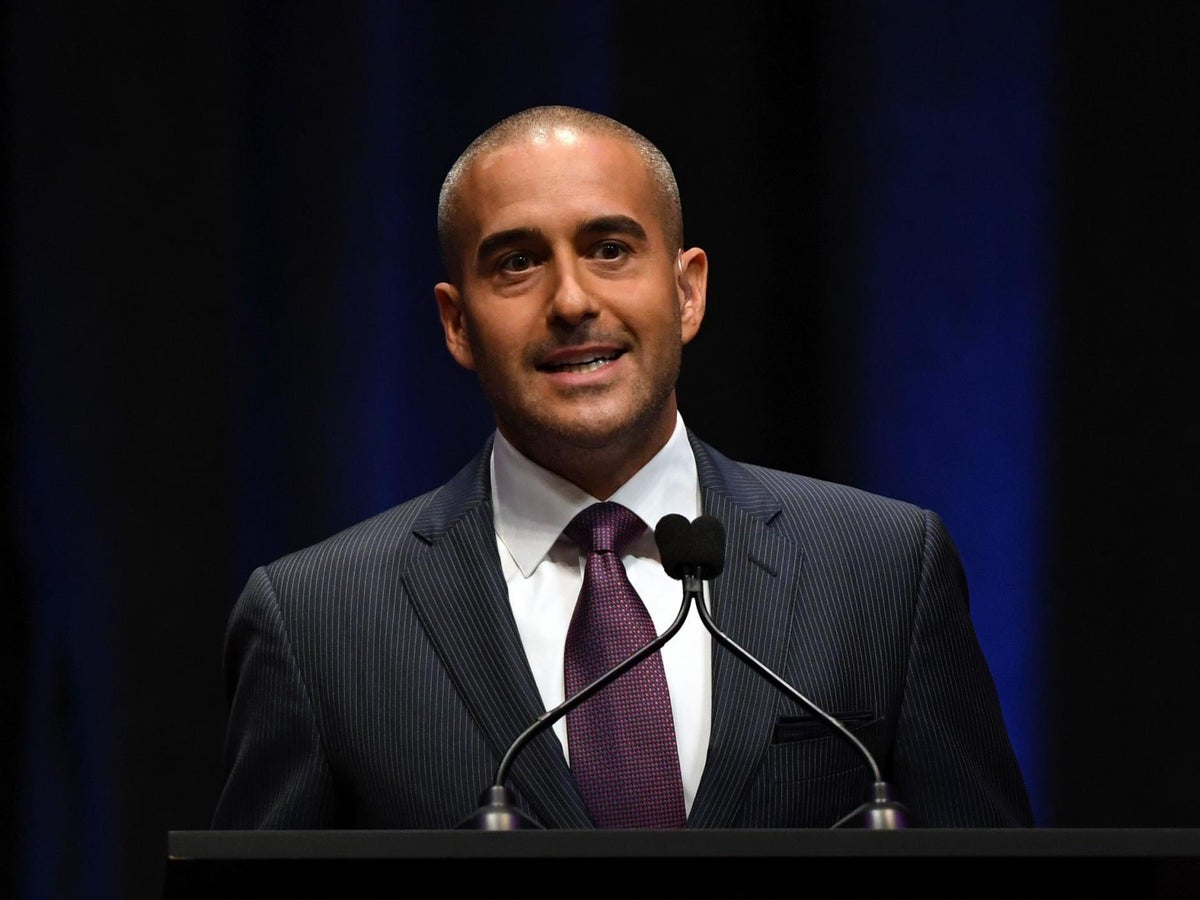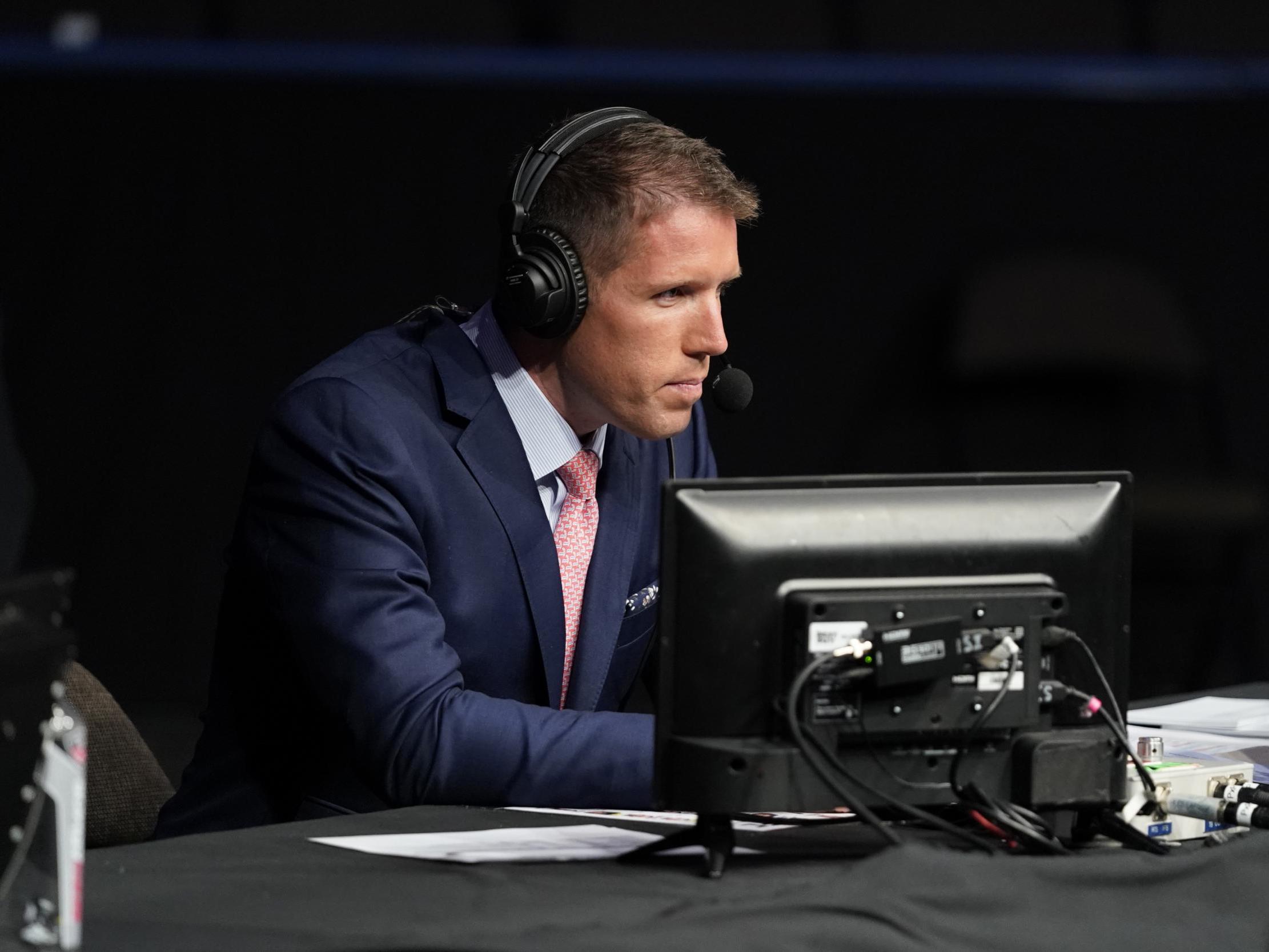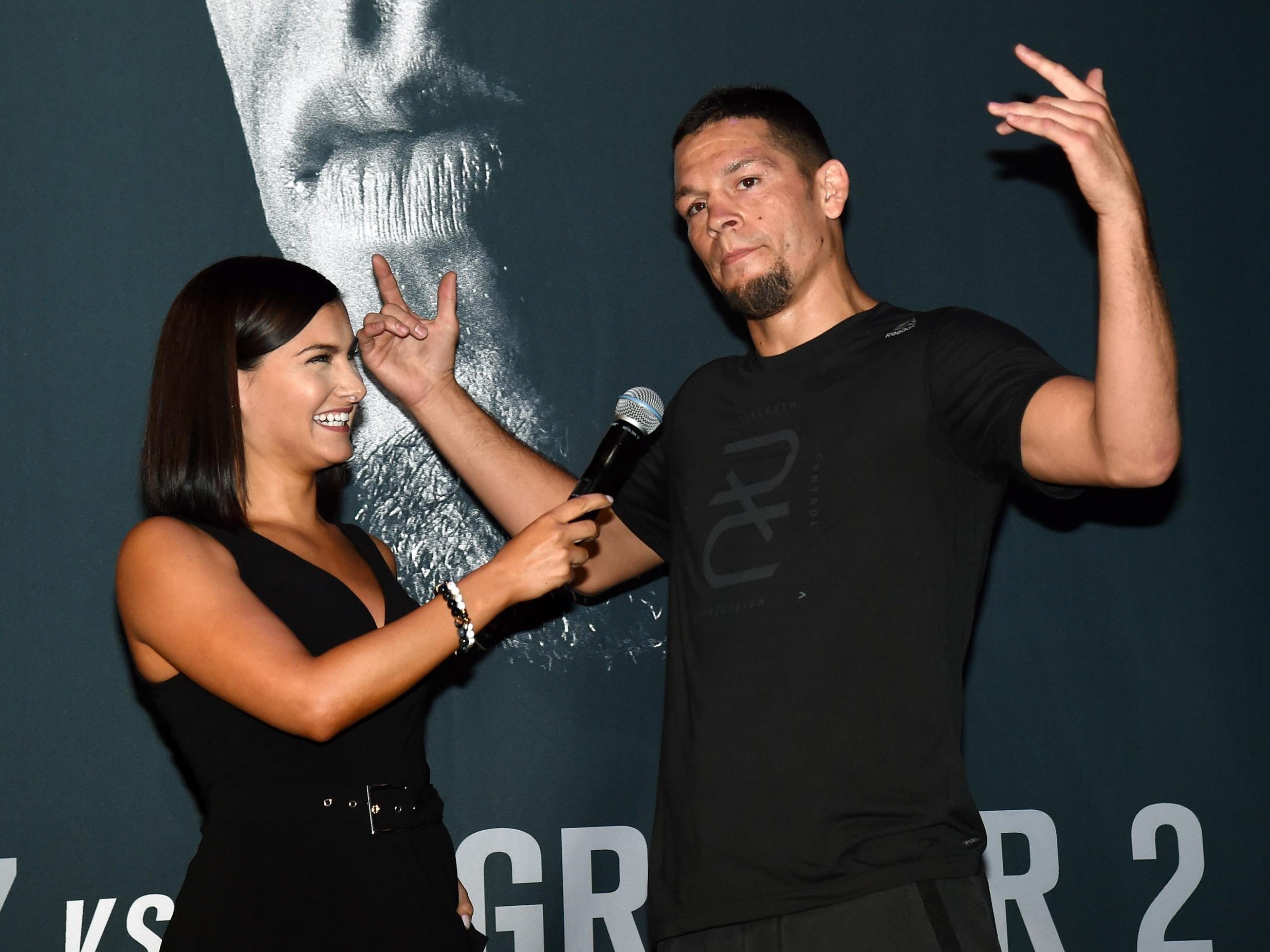
Who has the hardest job in the UFC?
You could argue that there are just shy of 600 correct answers to that question, with the name of any fighter who steps foot in the Octagon a valid response. Jon Anik, Megan Olivi and Brendan Fitzgerald wouldn’t dare to dispute that notion, but the truth is that all three of them – as part of the UFC’s wider broadcast team – are subject to a similar level of scrutiny and pressure to their colleagues on the other side of the Octagon fence.
Play-by-play commentators Anik and Fitzgerald provide vital layers to the soundtrack of the in-ring action on their respective nights on the job, their contributions for the viewers at home filling the space between the noise of the crowd and the sound of shins colliding. Olivi, meanwhile, is a reporter and host whose face is as familiar on UFC broadcasts as Anik and Fitzgerald’s voices are. She is the go-to go-between in the connection of fans and fighters, tasked with asking UFC’s roster members questions whether they are radiating in the glow of triumph or dwelling in the mire of defeat. She is also married to UFC flyweight contender Joseph Benavidez, so knows what goes through a fighter’s mind on fight week as well as anyone.
All four spend a significant amount of their time in front of cameras with microphones in hand, enlightening fans on what is unfolding in the cage. They also take great pride in exploring who it really is that is on the end – either end – of a hurtling first or elbow for the entertainment of thousands in arenas and on couches.
Here, however, Anik, Olivi and Fitzgerald allow The Independent to shed some light on who they really are, and on what they do to bring UFC broadcasts to life every weekend.

What’s your preparation like ahead of a UFC card?
Anik: It’s the devil I know, but it’s a huge undertaking every time we do one of these. With respect to all of my other co-workers, the guy who is the UFC play-by-play just has so many hours to put in to get ready for one event – I wouldn’t even know where to begin in terms of how many. For me, it always begins with fighter cards. I transfer our UFC bios to those cards and I watch film as I’m doing that. Just to give you an example: Kyle Nelson was supposed to fight at UFC Vegas 4… Then he’s not fighting anymore. I’d already prepped Kyle Nelson, I’d already put a full hour into that and now I have a new fighter. If somehow a show got delayed due to a power outage, I’d be able to make good use of the additional four or five hours I’d get!
Olivi: I’m constantly rewatching fights. Even though I have seen maybe somebody’s entire UFC career, sometimes it’s hard to remember those details. I have a document on all our different fighters, and I’ll continue to update it throughout the years. Also, until pretty much the time our broadcast starts and even sometimes during, I’ll be checking fighters’ social media. Sometimes they’ll post from their locker room and that can really give you insight into their mindset or things they’re drilling and then you see that play out in the fight. We also meet with most of the fighters on Thursdays, and a lot of times they’ll volunteer information that maybe they wouldn’t put out publicly, so we get some great tidbits there. I think for me it’s a lot of old-school preparation teamed up with 21st century technology.
What is going through your head when you’re calling or watching a fight?
Olivi: I am always so thrilled for our winners and so heartbroken for our losers. It’s just like… I know what it takes to get there, I know how much sacrifice is made, I know how much it matters. Sometimes people look at me because I’m a woman and think I have these emotional reactions. Like, there’s a clip of all of us reacting to Kevin Lee’s massive knockout against Gregor Gillespie, and I actually have the smallest reaction out of everybody, I just cover my mouth, and all the dudes around me are cursing and stuff. And people said: ‘She’s not cut out for this.’
But for me, all fighters are human beings who need to go home to their families. Yes, they sign up to fight another person in a cage, but it doesn’t mean that I need to have this enjoyment of watching someone get brutally knocked out on the canvas, feet away from me. I get flak for that sometimes. As for my husband, I don’t traditionally watch him fight, I don’t like it. I don’t even watch the replays. I just go backstage and pray.

What’s your most vivid memory of an event or fight?
Fitzgerald: There’s a clear first place for me: the ending of Yair Rodriguez vs Jeremy Stephens in Mexico, when that main event was called a no contest just seconds into the fight! When it first happened, I remember thinking: ‘Okay, there’s no way it ends on an eye poke.’ I didn’t even think ahead that fans would be throwing beer, but once the first one got thrown, I was like: ‘Oh yeah… Of course it’s gonna get crazy in here.’ I had to kind of talk through it, and a beer hit our stage manager to our left and it splashed across our table. So he goes down and puts his chair up like a gatling gun, and I thought: ‘That’s a decent idea!’
What if somebody throws a phone? What if somebody’s got a knife? You never know, and there’s no way to out-tough an angry crowd that’s throwing stuff – unless you’re Mike Bisping next to me! I thought if I took a seat under the table, I could see the arena’s monitor and be covered on three sides. That was the best way I thought of to stay calm and talk through the moment. I didn’t even realise it’d get a reaction online like it did. I didn’t think I’d get made fun of! Bisping dipped down, I saw his phone, and I thought: ‘Bisping’s got the Instagram story going,’ and that’s how it got out. It was funny, though – I’m always a laugh-at-myself kind of guy.
Is there a call you’re most proud of?
Anik: I think we’re trying to not be the story, and stay in our own lane, but one thing I’ll say about fight-ending calls is that I want them to be organic and original to the moment. I don’t just want to hit a button and say: ‘It’s all over!’ I want it to be a call that ages gracefully with that historical moment. So for me, it can be as simple as ‘Marlon Moraes by knockout!’ ‘Edson Barboza does it again!’ It doesn’t have to be a lot, but certainly the one that most people approach me about is: ‘One of the greatest knockouts you’ll ever see, Askren stiff as a board, Gamebred!’ [following Jorge Masvidal’s record-setting fastest UFC KO ever against Ben Askren]. Humbly I can say I was happy to be able to punctuate that moment with a ‘Game, period, Bred, period’, because it sort of gave the moment a little boost. As long as the athletes are happy with it, that’s really all that I’m concerned with.
Fitzgerald: I always point to when the ‘Korean Zombie’ [Chan Sung Jung] knocked out Renato Moicano; I like those ones when you can sense the end coming and your voice kind of rises with the crowd. After the initial call we didn’t talk for like 45 seconds, ‘cause the crowd were chanting Zombie and the pictures did so much to tell the story. Then Zhang Weili in China: That was a watershed moment, I was almost freaking out like a fan and my voice was cracking… I’m not necessarily proud of that aspect of it, but I think some fans like that we have the same passion as them. ‘Flyweight division, say hello to your worst nightmare’ – that’ll live on in every Valentina Shevchenko feature forever. When Anthony Pettis KOed Stephen Thompson: ‘Wonderboy’s out!’ I’ve seen some comments from fans saying: ‘When he said that, that’s exactly what I was saying at the same time.’
What do you have to consider when interacting with fighters?
Olivi: I think sensitivity is the best word for my approach, because – even though there’s nearly 600 fighters on our roster – we’re kind of like this big travelling circus, a big family. My husband is my greatest motivation to make sure I’m handling each and every fighter with grace and as much care as I can. He is the most important person in my entire life, in my entire world, and I want everyone who works with him in the media to treat him with respect and like a full human being, a full circle of a person, not just a guy who fights in the Octagon.
Some of the biggest challenges for me come when I’m interviewing fighters after they lose. A loss can be the most heartbreaking thing that they will come across for a long time, so it is important to word things as carefully and respectfully as you can. I also always talk to fighters at and after weigh-ins, because sometimes after they eat and drink they have a little bit more openness and clarity on what they want to share with us!
Anik: It’s hard for one person to support the entire 600-person roster, but I do try to lend my support, comment on Instagram posts now and then… Inevitably, though, someone is going to feel under-supported or that they’re not getting a fair shake from the commentators, and it’s difficult. We stay in the same host hotel as the fighters normally, too. I was even confronted by the Josh Emmett corner recently. They thought somehow we were biased to Shane Burgos, and I honestly don’t understand where they’re coming from, but that’s something we’ve had to deal with time and time again. If any fighter ever has something specific and concrete, I am always there and wanting to right that wrong – it weighs heavy on me when a fighter thinks we’ve done something wrong. But I’m not here to make friends, even if I do consider a lot of the roster friends.
What would you recommend fans look out for when they’re new to MMA, or maybe have been watching for a while but struggle to follow certain aspects of the sport?
Anik: Certainly knowing how to throw a punch and knowing boxing fundamentals helps. But even with me, when it comes to the jiu-jitsu game, when the fight hits the ground, I’ll be frank: They want me to shut the f*** up. I know the lingo, but I’m trying to stay in my lane. Also, the sport happens so fast. You have to put your phone in your pocket and watch as intently as you’ve ever watched anything in the world. Learning how to watch intently helps.







